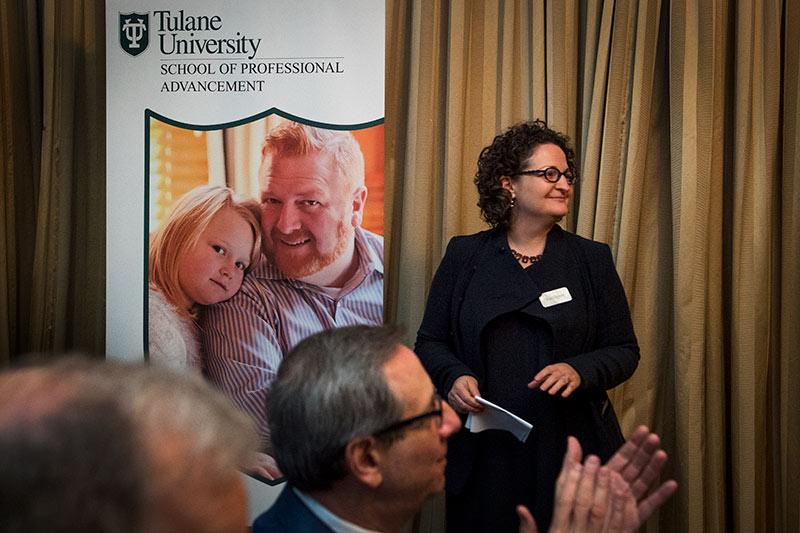A new look, a new direction: Tulane introduces the School of Professional Advancement
Tulane University has formally relaunched the School of Continuing Studies as the School of Professional Advancement. The school is one of six at Tulane that offer both undergraduate and graduate programs.
Suri Duitch, the vice president for academic innovation and dean of the school, presented President Mike Fitts and the Board of Tulane with a new name and plan and the resolution passed unanimously on March 17, 2017.
“Today is an exciting day as we unveil a new identity for one of our most popular schools,” Tulane President Mike Fitts said. “Tulane has a proud history of serving working adult students and offering an education relevant to the workplace, going back to 1884. The School of Professional Advancement will allow working adult students to focus on applied learning and responsiveness to the workplace and is positioned for tremendous future opportunities and growth.”
Duitch stated that the new name of the school is more directly reflective of its focus on working adults, career advancement, and applied and innovative programs that are relevant to the workplace.
“When I accepted the job last summer, it was clear to me that, along with other significant steps we were taking to position the school for the future, changing the name was crucial,” Duitch said. “I would like to thank President Fitts, Robin Forman, Rick Matasar and everyone else involved for their assistance with this process.
“Over a four-month period, we consulted with a range of stakeholders, including students, alumni, faculty, staff, and community members. This change will bring us one step closer to fundamentally transforming the nature of the educational experience we offer to our students and will help position us for significant future growth, both in classroom-based programs and online.”
The School of Professional Advancement offers 26 undergraduate programs of study and four master’s degree programs on three different campuses, including Tulane’s Uptown and Elmwood campuses and its Mississippi Coast Campus in Biloxi.
Duitch pointed to two current degree programs where the school will expand offerings, including digital design, which will soon be revamped and updated, and the school’s nationally recognized homeland security program, which was ranked No. 3 out of 50 by Value Colleges.com She also announced that a new concentration in cyber security will be available in the fall.
Tulane’s commitment to serving working adults goes back to 1884 when the university first offered courses to school teachers and to young men in need of skills in the trades.

